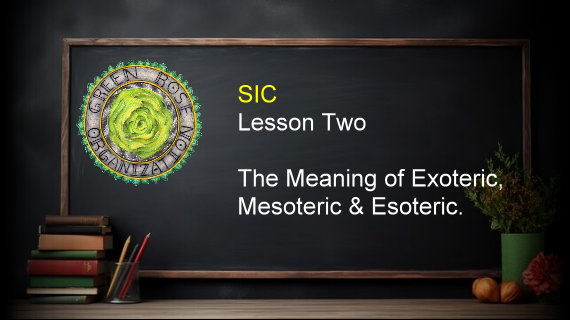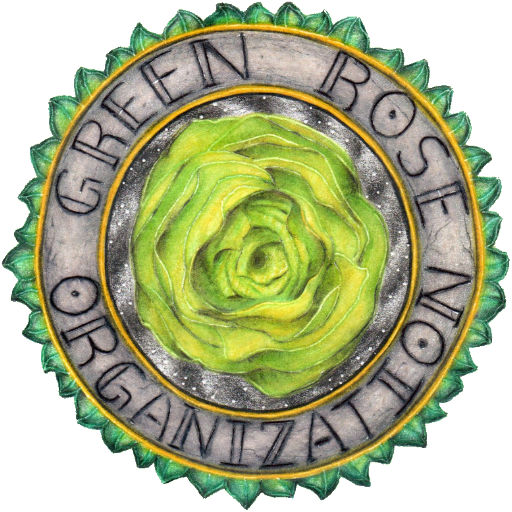
THE MEANING OF EXOTERIC, MESOTERIC & ESOTERIC
A DETAILED EXPLAINATION OF THE SUBTLE DIFFERENCES BETWEEN EXOTERIC, MESOTERIC & ESOTERIC KNOWLEDGE & TEACHINGS
The distinction between exoteric, mesoteric, and esoteric knowledge lies in the depth, accessibility, and intended audience of teachings within religious, philosophical, and mystical traditions. These terms describe different layers of wisdom, each serving a unique function in guiding individuals toward understanding and transformation. 1. Exoteric Knowledge: The Outer Teachings—Exoteric knowledge refers to the publicly available, surface-level teachings intended for the general population. It serves as the foundational layer of religious or philosophical instruction, often expressed through: Sacred texts and scriptures (such as the Bible, Quran, or Vedas). Rituals, practices, and ceremonies observed by adherents. Moral and ethical guidelines that govern behavior, and symbolic narratives and myths meant to convey basic spiritual truths. Exoteric teachings are structured and easily accessible to those who seek them, often emphasizing communal worship, social order, and shared beliefs. They provide a framework for living virtuously, following moral laws, and fostering harmony within society. However, these teachings often rely on allegory and metaphor, requiring deeper reflection to uncover hidden meanings. 2. Mesoteric Knowledge: The Intermediate Path—Mesoteric knowledge serves as a bridge between exoteric and esoteric teachings. It represents deeper philosophical, mystical, or initiatory knowledge, reserved for serious seekers who move beyond surface-level interpretations. This stage involves more profound theological and philosophical discussions that challenge conventional understandings. Mystical interpretations of sacred texts, exploring symbolic and metaphorical meanings. Esoteric preparation, where individuals cultivate virtues and mental discipline before receiving deeper wisdom. The initiation process, where seekers undergo structured training or rites of passage. Mesoteric teachings are often hidden within exoteric narratives, requiring trained interpreters, scholars, or initiates to uncover their true significance. This knowledge is frequently preserved within mystery schools, spiritual orders, or advanced study groups. 3. Esoteric Knowledge: The Inner Mystery—Esoteric knowledge represents the most hidden, profound, and transformative wisdom, reserved for initiates who are spiritually prepared to receive it. This level of teaching is not public but rather transmitted through direct experience, personal revelation, or initiation into secret traditions. Esoteric knowledge includes: Inner spiritual realizations, involving direct mystical experience. Secret doctrines, hidden from the unprepared to avoid misinterpretation or misuse. Symbolism and metaphysics, which require deep study and intuition to comprehend. Personal enlightenment, leading to self-transcendence and unity with the divine. Esoteric teachings often challenge conventional thinking, offering paradoxical insights that shift perception and consciousness. The transmission of such knowledge may involve oral teachings, cryptic texts, or symbolic rituals understood only by those initiated into a particular path. In many traditions, exoteric teachings serve as the starting point, mesoteric teachings provide depth and refinement, and esoteric teachings lead to ultimate wisdom and transformation. While not everyone progresses to the esoteric level, those who do often undergo inner purification, intellectual rigor, and personal awakening before unlocking these mysteries. Some religious institutions emphasize exoteric teachings, while mystical and initiatory traditions (like Sufism, Kabbalah, or Zen Buddhism) cultivate esoteric wisdom. Reflecting on these layers can deepen your understanding of how belief systems shape personal growth and philosophical inquiry.

